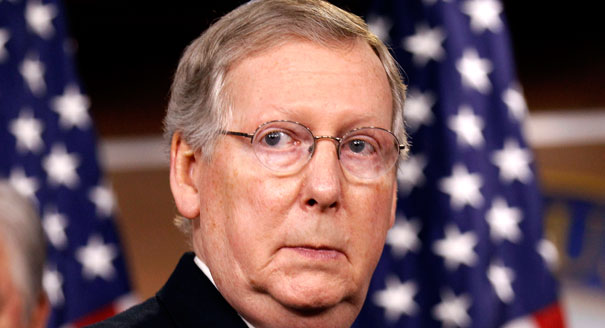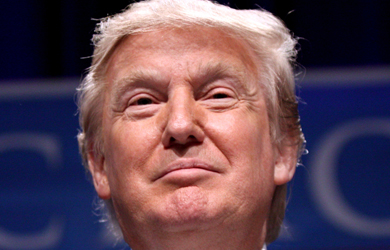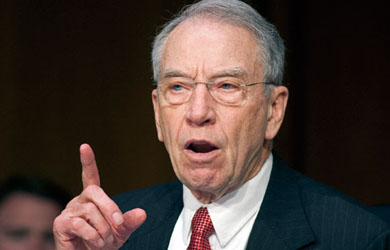About an hour after the death of Justice Antonin Scalia was confirmed in February, Senate Majority Leader Mitch McConnell shaped the tone of his party’s refusal to consider any person President Obama would nominate for the open seat on the court.
“The American people should have a voice in the selection of their next Supreme Court Justice,” McConnell said in a statement. “Therefore, this vacancy should not be filled until we have a new president.”
The message that not allowing a popularly elected president to fulfill his official duties by nominating a Supreme Court justice was somehow letting the American people “have a voice” in the process became the rallying cry of Senate Republicans and the advocacy groups supporting them.
Occasionally, however, conservatives would slip from such messaging and revealthereal reason Republicans are trying to block any consideration of a Supreme Court nominee: partisan politics.
Sen. Jeff Flake of Arizona, who supports the party’s blockade but has never quite got on board with the party’s messaging, said soon after Obama nominated Judge Merrick Garland — who in any other time would be a decidedly consensus choice — that the Senate should confirm Garland in the lame duck session if a Democrat wins the presidency in November, thus averting the risk of having the next president pick a justice who is less appealing to Republicans.
Flake made a similar argument in an interview on Meet the Press on Sunday, saying that at least for him the “principle” in question was never “that the people ought to decide before the next election” but that “the principle is to have the most conservative, qualified jurist that we can have on the Supreme Court.”
“If we come to a point, I’ve said all along, where we’re going to lose the election or we lose the election in November,” he said, “then we ought to approve [Garland] quickly because I’m certain that he’ll be more conservative than a Hillary Clinton nomination come January.”
Of course, as Flake honestly points out, the point of the Senate GOP’s blockade of Garland’s nomination has never been a high-and-mighty matter of principle, but has instead been a high-stakes gamble that a Republican will win the White House and be able to fill Scalia’s seat on the court. (Something that has become even more of a gamble now that Donald Trump is the presumptive Republican nominee for president.)
Even the Judicial Crisis Network, the primary outside group working to support the GOP’s Supreme Court blockade, has quietly moved away from its original message that Republicans were stalling proceedings because “the American people should decide” who the next Supreme Court justice should be.
JCN’s chief spokesperson, Carrie Severino, told the Washington Post yesterday that her group still opposes a last-ditch confirmation of Garland. She didn’t mention her group’s previous “people should decide” message, instead framing it as a strategic political choice, predicting that if Hillary Clinton were to become president, she would simply renominate Garland because she would not realistically be able to get confirmation of a nominee who is “more loud and proud and out there.”
“If the idea is that Hillary Clinton would pick a new nominee, I question whether that’s something whether even her fellow Democrats want to see,” she said. “I’m already seeing Democrats in red states who are nervous about Garland; they’re not going to be calmer if a new nominee is chosen who pushes more demographic buttons, or is more loud and proud and out there.”
Severino, whom Democrats are growing more familiar with as her group bombs their states with TV ads, insisted that the party would regret it if it responded to a Clinton victory by rejecting the overtures about Garland and pushing for a new “dream” nominee.
“Unless they win 60 votes in the Senate, they’d be hard-pressed to get an Eric Holder confirmed,” she said. “I don’t think, at the end of day, they can confirm someone better from their perspective. And his tone and calm temperament means he’d be better as a swing vote.”







